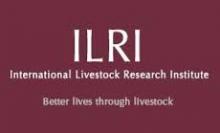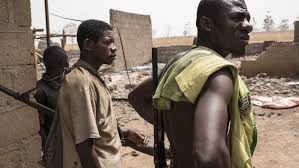Location
Vision, mission and strategy
ILRI's strategy 2013-2022 was approved in December 2012. It emerged from a wide processof consultation and engagement.
ILRI envisions... a world where all people have access to enough food and livelihood options to fulfil their potential.
ILRI’s mission is... to improve food and nutritional security and to reduce poverty in developing countries through research for efficient, safe and sustainable use of livestock—ensuring better lives through livestock.
ILRI’s three strategic objectives are:
- with partners, to develop, test, adapt and promote science-based practices that—being sustainable and scalable—achieve better lives through livestock.
- with partners,to provide compelling scientific evidence in ways that persuade decision-makers—from farms to boardrooms and parliaments—that smarter policies and bigger livestock investments can deliver significant socio-economic, health and environmental dividends to both poor nations and households.
- with partners,to increase capacity among ILRI’s key stakeholders to make better use of livestock science and investments for better lives through livestock.
This is ILRI’s second ten-year strategy. It incorporates a number of changes, many based on learning from the previous strategy (2000–2010, initially produced in 2000 and modified in 2002), an interim strategy (2011–2012) and an assessment of the external and internal environments in which the institute operates.
Members:
Resources
Displaying 91 - 95 of 1152Herders against Farmers: Nigeria’s Expanding Deadly Conflict
Violent conflicts between nomadic herders from northern Nigeria and sedentary agrarian communities in the central and southern zones have escalated in recent years and are spreading southward, threatening the country’s security and stability. With an estimated death toll of approximately 2,500 people in 2016, these clashes are becoming as potentially dangerous as the Boko Haram insurgency in the north east. Yet to date, response to the crisis at both the federal and state levels has been poor.
Combining simulations, social science, and stakeholder engagement for improved social-ecological systems analysis: Insights from a pastoralist landscape in southern Ethiopia
Transcending landscapes: Working across scales and levels in pastoralist rangeland governance
Landscape approaches can be subjected to mistakenly targeting a single “best” level of governance, and paying too little attention to the role that cross-scale and cross-level interactions play in governance. In rangeland settings, resources, patterns of use of those resources, and the institutions for managing the resources exist at multiple levels and scales.
The role of mobile technologies in promoting sustainable delivery of livestock insurance in the East African Drylands: Toward sustainable Index-Based Livestock Insurance (IBLI) for pastoralists
Socioeconomic impacts of innovative dairy supply chain practices - The case of the Laiterie du Berger in the Senegalese Sahel
This study analyzes the Laiterie Du Berger (LDB)’s milk supply chain and its contribution to strengthening the food security and socioeconomic resources of Senegalese Sahelian pastoral households. Porter’s value chain model is used to characterize the innovations introduced by the LDB dairy in its milk inbound logistics and supplier relationships. A socioeconomic food security index and qualitative data are used to assess the dairy’s supply chain’s contribution to strengthen smallholder households’ livelihoods.



